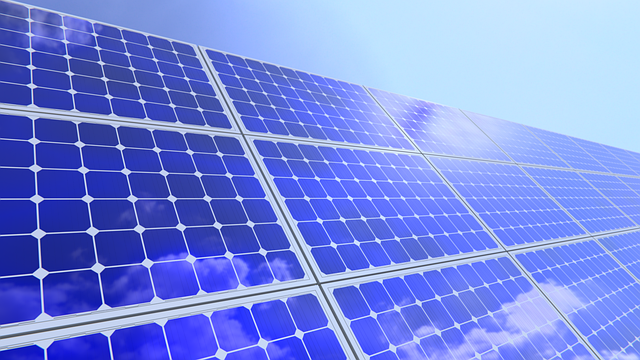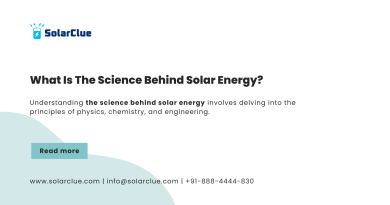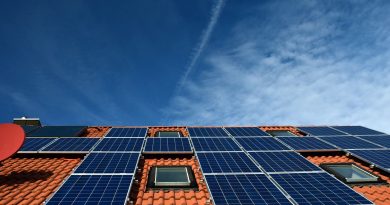Maximizing Solar Efficiency: Best Practices
Solar energy is becoming an increasingly popular and viable source of renewable energy around the world. With rising environmental concerns and the need for sustainable power solutions, solar panels have emerged as a promising technology to harness the abundant energy from the sun. However, the efficiency of solar panels is a critical factor in determining their effectiveness and economic feasibility. In this blog, we will explore when and how solar panels are most efficient, taking into account various aspects such as sunlight intensity, angle, temperature, and technological advancements.
Table of Contents
Factors Affecting Solar Panel Efficiency
Solar panel efficiency is influenced by several key factors that determine the amount of sunlight that can be converted into electricity. Understanding these factors is crucial for maximizing solar panel efficiency and harnessing the most energy from the sun.
Sunlight Intensity
The intensity of sunlight plays a significant role in solar panel efficiency. Typically, the highest levels of sunlight intensity are observed during clear, sunny days. Cloudy or overcast weather can significantly reduce sunlight intensity, affecting the overall output of a solar panel system. To maximize efficiency, solar panels should be installed in regions with consistent sunlight levels and minimal shading.
Solar Panel Orientation
The orientation of solar panels relative to the sun also influences their efficiency. Ideally, solar panels should be facing south in the Northern Hemisphere and north in the Southern Hemisphere to receive the most sunlight throughout the day. Angling the panels towards the sun’s position at peak daylight hours will ensure optimal energy absorption.
Solar Panel Tilt Angle
Determining the ideal tilt angle for solar panels requires consideration of geographical location and seasonal variations. In general, the tilt angle should approximate the latitude of the installation site. However, adjusting the tilt angle based on the season can enhance efficiency. For instance, a steeper tilt angle during winter can capture lower angled sunlight, while a shallower angle in summer can prevent excessive heat buildup.
Temperature
The temperature at which solar panels operate affects their efficiency. High temperatures can lead to a decrease in the conversion efficiency of solar panels due to the relationship between temperature and conductivity. To counteract this, newer solar panel models are designed with advanced cooling technologies to maintain optimal operating temperatures and increase overall efficiency.
Advancements in Solar Panel Technology
Ongoing research and development in the field of solar energy have led to significant advancements in solar panel technology over the years. These advancements contribute to increasing their efficiency, making solar energy an even more attractive alternative to traditional energy sources.
Monocrystalline and Polycrystalline Panels
Monocrystalline and polycrystalline solar panels are the most commonly used types. Monocrystalline panels are made from a single crystal structure, allowing for higher efficiency, especially in limited space installations. Polycrystalline panels are made from multiple fragments of silicon and are slightly less efficient but offer a more cost-effective option.
Thin-Film Solar Panels
Thin-film solar panels are another type of solar technology that has gained popularity in recent years. These panels are lightweight, flexible, and can be integrated into various surfaces, making them suitable for unconventional applications. While they generally have lower efficiency than crystalline panels, advancements in thin-film technology are rapidly closing the efficiency gap.
Perovskite Solar Cells
Perovskite solar cells are a promising new technology that has shown tremendous potential in increasing solar panel efficiency. These cells are made of a synthetic material that has the ability to absorb a wider range of sunlight wavelengths, allowing for increased energy conversion. Although still in the experimental stage, perovskite solar cells hold the promise of significantly higher efficiencies and lower production costs in the future.
Conclusion
Optimize your solar investment with SolarClue®’s expertise in maximizing solar efficiency. Gain practical tips on proper panel placement, orientation, and shading analysis for enhanced energy production. Choose the right technologies and components with our guidance on solar panel selection, inverters, and system design. Address environmental factors impacting efficiency
Frequently Asked Questions
SolarClue® guides individuals in maximizing the efficiency of their solar panels. We provide practical tips and best practices to optimize energy production, offering insights into system design, maintenance, and usage for improved solar efficiency.
SolarClue® emphasizes the significance of proper solar panel placement and orientation. We offer guidance on aligning panels for optimal sunlight exposure throughout the day and across different seasons, enhancing energy generation for maximum efficiency.
SolarClue® assists individuals in understanding the impact of shading on solar efficiency. We provide insights into shading analysis, tree trimming, and the use of technologies like micro-inverters to mitigate shading effects and maximize energy output, ensuring uninterrupted solar production.
SolarClue® guides individuals on choosing the right solar panel technologies, inverters, and balance-of-system components. We consider factors like efficiency ratings, compatibility, and overall system design to ensure optimal performance and efficiency of solar installations.
SolarClue® addresses concerns about dirt, dust, and debris affecting solar panel efficiency. We offer maintenance tips, cleaning schedules, and information on protective coatings or technologies that can reduce the impact of environmental factors on energy production, ensuring sustained efficiency.
SolarClue® highlights the importance of regular solar panel maintenance. We provide a comprehensive guide on cleaning procedures, visual inspections, and performance monitoring to detect issues early and maintain optimal efficiency over time, ensuring long-term energy productivity.
SolarClue® engages with advancements in solar technology. We provide individuals with information on the latest innovations, smart technologies, and monitoring systems that enhance solar efficiency. Users can make data-driven decisions for better energy management, maximizing the benefits of their solar installations.
SolarClue® guides individuals in optimizing their energy consumption patterns. We offer insights into energy storage solutions, time-of-use strategies, and smart home technologies for more efficient energy utilization, ensuring users make the most of their solar-generated power.
SolarClue® addresses common misconceptions about solar efficiency. We debunk myths and provide accurate information to help individuals make well-informed decisions about their solar installations and energy-saving practices, dispelling any misinformation for a clearer understanding.
SolarClue® fosters a community where individuals can share experiences, tips, and success stories for maximizing solar efficiency. We create a platform for collaborative learning, empowering users to continuously improve their solar energy systems through shared knowledge and experiences.



